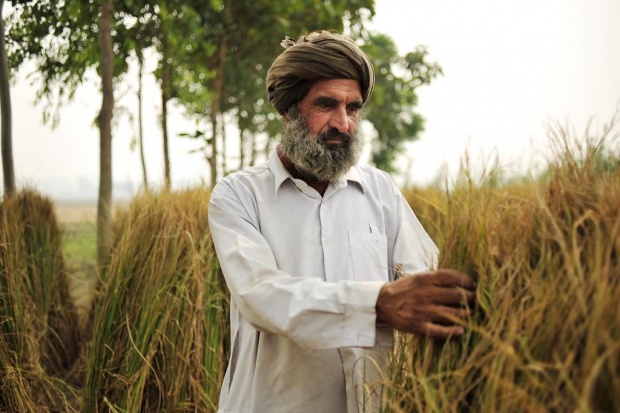Study shows how the Crop Loss Assessment Monitor – a decision support system – could help improve loss assessment and make crop insurance more efficient.
Farming has often been quoted as one of the noblest professions, shouldering the responsibility of feeding the world; yet it has been globally identified as one of the most perilous industries associated with a high vulnerability rate. Crop insurance has been established worldwide to provide social protection to farmers and reduce their vulnerability. While the emergence of crop insurance schemes around the world indicates commitment to secure the livelihoods of farmers, they often lack accurate seasonal crop growth monitoring and timely yield loss estimation, making the authentication of crop insurance claims more challenging.
Crop loss assessments are often done via crop cutting experiments (CCEs). However, these can suffer from human error and moral hazard. The experiments also require significant capital and human resources, and need to be carried out simultaneously, in a limited period of time. This often leads to inadequate and delayed claim payment, high premium rates, and poor execution of crop insurance schemes.
Related Articles: Sustainable Agriculture | Sustainable Agriculture in Commercial Farming | Rethinking New Technology for Small Farmers
With technological advancements and availability, crop growth monitoring and productivity assessment can not only be more accurate and efficient but also less resource-intensive. Readily available data and technology, such as detailed weather data, remote sensing, modeling and big data analytics can be instrumental in further improving crop insurance mechanisms. The CGIAR Research Program on Climate Change, Agriculture and Food Security (CCAFS) has developed a Crop-loss Assessment Monitor (CAM) tool as an integrated solution that uses technologies to improve loss assessment and make crop insurance more efficient.
The Crop-loss Assessment Monitor (CAM) tool
The CAM tool integrates multiple input data and methods for crop loss assessment at multiple times in the season. It uses different models for loss assessment depending on the time or stage in the season. To ensure user-friendliness, the tool was developed with a simple, easy-to-use interface and produces outputs customized for policy and risk management agencies. It uses freely available R libraries and does not require specific software installations and high-power processing engines, which in general are a prerequisite to process large gridded satellite data.
CAM provides a form-based user-interface to carry out the analysis. The user can log in and undertake analysis using multiple methods for a specified region and time. The tool allows users to choose between area-based yield insurance and weather-based index insurance. For insurance analysis, scheme details like sum insured and calamity years can be specified for calculation of threshold yields, premiums and claims.
CAM also includes tabs that provide ‘deviation in the weather’ and ‘deviation in satellite vegetation indices’ to help monitor crop conditions every fortnight. The tool also allows users to identify the model agreement between the four different methods for loss assessment, which strengthens the confidence levels in loss assessments, and related insurance analytics.
A single integrated framework
The tool combines agro-meteorological statistical analysis, crop simulation modelling and optimization techniques, and employs near real-time monitoring by using publicly available satellite products. It is also equipped to capture yield variability.
Highlighting the importance of this tool Dr. Pramod Aggarwal, lead author of the paper and Program Leader- CCAFS Asia based at BISA-CIMMYT, notes that “assimilating relevant technologies into a single integrated framework is a good way to determine crop losses. Its deployment can assist in multi-stage loss assessment and thus provide farmers with immediate relief for sowing failure, prevented sowing and mid-season adversity apart from final crop loss assessment.”
The tool addresses three major challenges faced by existing crop insurance schemes; more efficient weather indices, timely estimate of loss assessment and improved contract design. As the tool readily uses freely available technology and data, it requires less capital and human resource compared to crop cutting experiments for crop loss assessment. This tool offers a robust mechanism that further reduces the chances of human errors, and makes the process more transparent, robust and reliable. Therefore, it enables timely relief for farmers facing challenges such as sowing failure, prevented sowing and mid-season adversity.
About the author: Sakshi Saini is the Communication Specialist and Paresh B Shirsath is the Science Officer for the CGIAR Research Program on Climate Change, Agriculture and Food Security (CCAFS) South Asia, based at BISA-CIMMYT.
Editor’s Note: The opinions expressed here by Impakter.com columnists are their own, not those of Impakter.com.











